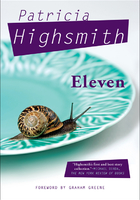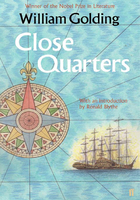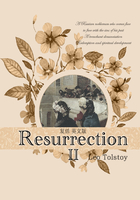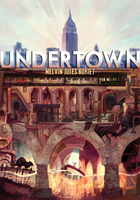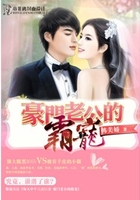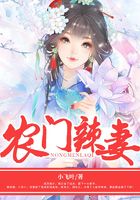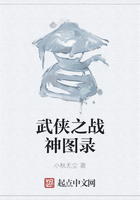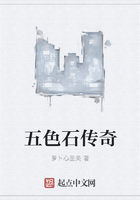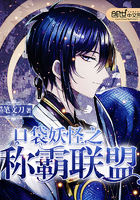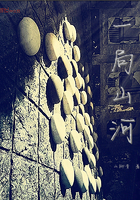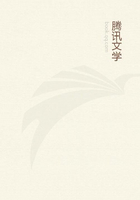A policeman called to the spot spoke of the selfishness of 'jumpers'. Locked in their own minds, they didn't think of anyone 'down below'. This one killed himself in the Manhattan rush hour and could have taken any number of people with him. Glass fell amid the traffic, the body itself landing near a ramp used by vehicles of an office of the US postal service. Postmen came out to help emergency workers clear up.
At dawn on Monday, February 3, 1975 a man had thrown himself from the forty-fourth floor of the Pan-American building on New York's Park Avenue. The 'jumper' was soon identified as Eli Black, aged fifty-three and head of United Brands, a large food corporation. A little over five years earlier, after one of the largest ever share deals on the US stock market, Black had taken over the United Fruit Company. He had absorbed one of the most famous – if not infamous – companies in the world into the United Brands group.
United Fruit's business was bananas. From bananas it had built an empire. The small states of Central America to the south of the US had come to be known as the 'banana republics': Guatemala, El Salvador, Honduras, Nicaragua, Costa Rica and Panama. United Fruit's reach extended to Belize – former British Honduras – and to Caribbean islands such as Jamaica and Cuba. In South America, Colombia and Ecuador had come under its sway. A company more powerful than many nation states, it was a law unto itself and accustomed to regarding the republics as its private fiefdom.
Why then had Black killed himself? Business was not thriving. A new banana disease had struck United Fruit's plantations in the early 1970s. The Middle East war of October 1973 had taken its toll on company fortunes: OPEC, the cartel of oil-producing countries, had multiplied the price of oil several times, which had hit the world as a whole but had had a particular effect on United Fruit. Latin America's banana-producing countries had set up a cartel of their own: UPEB, the union of banana-exporting countries. UPEB had promptly declared 'banana war' on United Fruit to get more money out of the company. From the money it made, United Fruit had always paid the producers the bare minimum. In 1974 nature had taken a hand. Hurricane Fifi had devastated the company's plantations in Honduras. Hurricanes were an occupational hazard in banana farming but Fifi was of unprecedented force – a wind of near biblical proportion. All these factors had contributed to United Fruit's current malaise.
Strangely, the business world suggested another dimension to Black's suicide. Amid the expressions of sympathy at his funeral, in the press and around New York's financial centre of Wall Street, some wondered whether Black's ethics had killed him. He was a man of exceptional morality, it was said. A devout Jew, he was from ten generations of rabbis. Thirty years before, Black had been ordained and had served a community in Long Island. He had subsequently ventured into business – he was a brilliant salesman and had made some spectacular deals – but had retained his principles.
At Christmas 1972 an earthquake in Nicaragua had destroyed the centre of Managua, the capital city. Under Black's direction, United Fruit was quick to send aid. A popular US cause of the time was the fate of Latin American farm workers, who worked in the US in poor conditions and for very low pay. Black opened negotiations with their unions. Many of his business associates considered him mad for such apparent generosity of spirit. Soon after his death, an article in the Wall Street Journal suggested it might mean there was no place for a person of high moral standards in an uncompromising financial world.
In 1975 I was a student at the University of Sussex. I am sorry to say that Black's death struck me as bizarrely comic. The idea of anyone who ran United Fruit occupying the moral high ground seemed absurd. The company's long history rendered it the ultimate 'corporate nasty'. It changed governments when it didn't like them, like the one in Guatemala in 1954 that had wanted to donate some of United Fruit's unused land to landless peasants. In 1961 United Fruit ships sailed to the Bay of Pigs in Cuba in an effort to overthrow Fidel Castro. As far back as 1928 the company was implicated in the massacre of hundreds of striking workers in Colombia. Gabriel García Márquez had written about the strike in One Hundred Years of Solitude. Born just before the massacre, he had taken the name of his fictional banana zone of 'Macondo' from that of a United Fruit plantation near his home in Aracataca.
In the 1970s, information from Latin America was still surprisingly scant. At the time, I saw television news footage of the earthquake in Nicaragua; I don't think I'd ever heard the country's name said before. A man was climbing across the ruins; he was overweight and doing so with difficulty, but he was consoling the bereaved and dispossessed. He was Anastasio Somoza, the president. There had been other Somozas before him and another Anastasio, his son, was waiting to succeed him. The president ran many of Nicaragua's businesses and it was amazing he had any time to run the country at all. It had already been speculated that he would do well from the anticipated flood of earthquake relief funds.
Soon after, I caught another programme, a rare BBC documentary on Central America, specifically Honduras. For the first time that I can recall, the United Fruit Company was mentioned. The company, it was reported, had built several hundred miles of railway on its plantations in the distant northeast of the country on the Atlantic coast. The Honduran capital, Tegucigalpa, by contrast was on the high central plateau. For many years the city had been promised a railway of its own, and it had duly given the United Fruit Company a lot of land on which to grow its bananas, but the line had never materialised. Tegucigalpa, therefore, was one of the few capitals of the world, possibly the only one, that didn't have its own railway station.
As for bananas, I already had some interest because I had spent two months on a banana kibbutz in Israel, on the border with Syria, at the southern reaches of the Israeli-occupied Golan Heights, and Jordan. Its plantation was a few minutes' drive by tractor from the kibbutz's residential buildings, and formed a kind of detached enclave on the outer edges of kibbutz life. It was far nearer the neighbouring Jordanian village and only a few yards from the frontier wire. The banana plants grew to about five metres high, their fronds arching over us to make for a lot of pleasantly refracted sunlight. Mostly, however, the plantation was a sweaty and contained world. Tarantulas and scorpions allegedly lurked in each stem of bananas, though they failed to reveal themselves let alone bite or sting. We were warned against snacking on fallen fruit, especially any with split skin, in case it had received the attention of rats, which, it was said, liberally pissed around in the plantation by night.
The work involved humping banana stems of some forty kilos each from banana plant to tractor trailer for six hours a day. Just easy enough not to be onerous, it was my first experience of the 'dignity of labour'. The pay amounted to only a few pence a day but I quite enjoyed being out of the world of money. Not all those with me agreed: 'fucking communists', said Irwin, my co-worker from Brooklyn.
Such experience of the world I took with me to university. With fees paid and a government grant, I went to Sussex, a detached enclave in its own right, its campus carved out of the forest on the English south coast and devoted to theoretical improvement. I did a course in International Relations. When it eventually came to writing my final thesis I chose the case of United Fruit and the banana republics.
'Banana republic' was a familiar enough term. It had seemed inoffensively jokey, at worst a form of shorthand for political and economic mismanagement, probably with corruption thrown in, plus an element of national dependence on some large external force. It turned out, however, to be a more patronising and derogatory term than I had imagined, at least as viewed by the countries and people to whom it was applied. It was used as if it described their original state, while saying very little of what role any aforementioned large external force may have played in creating or exacerbating their predicament. By its actions, United Fruit had invented the concept and reality of the banana republic.[1]
One thing I learned during my research was that such a republic didn't have to produce bananas to qualify for the title. Nicaragua, for example, did not grow bananas in any great commercial quantity. The country's banana republicanism resided in the happy coincidence of views enjoyed by the ruling Somoza family, United Fruit and the US. The Somozas had been first to offer their services to assist in both the Guatemalan coup in 1954 and the Bay of Pigs invasion in 1961. Washington regarded the Somozas' army (well-equipped with US arms) and United Fruit as forces for stability that kept Central America subdued.
By the mid-1970s, when I was writing my thesis, multinational corporations had become a theme of the age. Salvador Allende's left-wing government had been overthrown in Chile by the armed forces led by General Augusto Pinochet. The International Telephone & Telegraph Corporation (ITT), a US company that had big interests in Chile, was thought to be behind it. At the same time, OPEC's oil price rises had caused crisis around the world, yet the oil companies had emerged with huge profits. Barclays Bank, meanwhile, based in Britain, was making big money out of apartheid in South Africa.
But in all such corporate practices United Fruit had been there before. In order to price-fix, United Fruit hadn't troubled with setting up cartels, it just did the job on its own through monopoly control of its market. As for repressive regimes, they were United Fruit's best friends, with coups d'état among its specialities. United Fruit had possibly launched more exercises in 'regime change' on the banana's behalf than had even been carried out in the name of oil.
United Fruit had set the template for capitalism, the first of the modern multi-nationals. Certainly there had been other and older big companies, the British East India Company, for example, which had been at its peak in the 1700s. By the mid-nineteenth century, however, the East India Company, was a licensed agent of the Crown and dependent on the British Empire. United Fruit knew better: it did things differently and beyond formal imperialism. It could often count on the help of the US government and the CIA but maintained its boast that it had 'never called in the marines'.
There were other older companies than United Fruit in the modern era too, but originally they had been stay-at-home types. The US's nineteenth-century 'robber barons' in oil, railways, steel and banking made their profits without straying far beyond national borders. They had paid a penalty for this as eventually laws were made to curb their practices and, to some extent, they were forced to 'behave'. By contrast, for a long time United Fruit had avoided this fate because it was out on a wider frontier. It had set up its own enclave in Central America, a network of far-flung plantations and company towns that acted as an experimental laboratory for capitalism, unhindered, unwatched and forging ahead into the great unknown.
United Fruit had started with a few bananas grown at the side of a railway line and become a global power. It took many forms and went by many names: La Frutera, the fruit company; El Yunay, as in Yunay-ted Fruit; or simply La Compa?ía. Famously it was El Pulpo, the octopus, its tentacles everywhere. It was greedy and controlled millions of acres of land, only a relatively small part of which it used. In countries of many landless small farmers, it kept the rest to keep out competitors and for a 'rainy day'. In and around its plantations it had fifteen hundred miles of railways, a good number of which its host countries built and paid for.
United Fruit's Great White Fleet of refrigerated ships, 'reefers', comprised the world's largest private navy. Painted against the heat, its ships ran cruises to places of which people could scarcely dream: Havana with its casinos, brothels and other palaces of entertainment; the cays of Belize; the Panama Canal. Its in-house slogan, however, upheld its status as a merchant line: 'every banana a guest, every passenger a pest'.
Its plantation hospitals, which were mainly built to accommodate its supervisors and managers brought down from the US, formed the largest private health system in the world. In Guatemala the company saved the Mayan ruins of Quiriguá from the jungle. It installed the tramways and electric street lighting of the Costa Rican capital, San José. United Fruit was power.
For my thesis I read the available material on the company. There was a lot of it, more as far as I could tell than on any other company in the modern era. For years United Fruit had attracted a great deal of attention. Myriad articles, academic dissertations and polemics between left and right had been devoted to it. United Fruit had even made the leap into literature, not that it would have chosen to. Pablo Neruda was from Chile, in South America, and well away from United Fruit's sphere of influence, yet in 1950 he felt inspired to include a critique of the company in his epic poem about the Americas, Canto General. Through such attention, United Fruit had entered Latin American folklore. García Márquez had illustrated the point in the 1960s. Also, Miguel ángel Asturias, from Guatemala, had written his novel, The Green Pope, about United Fruit's exploits in his country and had won the Nobel Prize for literature in 1967.
By the mid-1970s the hostile debate that United Fruit had long prompted had died down. The company had transformed into being more a matter for cultured reflection than fiery invective. Maybe, I dared to presume, El Pulpo wasn't quite the tentacled power it had once been. Then something happened as if itself an act of magical realism. After a sudden, almost violent upsurge of interest in United Fruit around the time of Black's suicide, the company vanished.
The famously moral, late and departed chief of United Fruit hadn't been what he had seemed. He had bribed members of the military government of Honduras. He had calculated that, in their country's hour of need after Hurricane Fifi, a small inducement – one and a quarter million dollars – might encourage them to pull Honduras out of the banana cartel that had waged war on United Fruit.
Historically, this was a very United Fruit thing to do. 'Fruit company bribes Central American militarist' had become over the years less the stuff of news than a statement of the obvious. Yet the transgression provoked a storm of opprobrium, a whirlwind of moral outrage. Strangely enough, this was not from United Fruit's most obvious enemies – bolshie students, academic polemicists and Latin American magic realists – but from its own kind.
Wall Street was outraged. The company's shares crashed. The financial authorities muscled in to seize its books, to prevent 'its further violation of the law'. The cry went up that United Fruit was up to its old tricks again from quarters willing to overlook them in the past. The effect was to drive United Fruit out of the temple. It was as if a death squad from the company's old Central American area had 'disappeared' it off the streets. United Fruit's anti-democratic tendencies in the past had done much to encourage death squad activities. Now events followed a familiar pattern. Quickly everyone stopped talking about the victim in anything but whispers; soon they did not mention it at all. Had it ever been there?
As for Eli Black, more details emerged on how he had met his end. To smash his office window he had used his briefcase, which was laden with papers and heavy books. He had thrown the briefcase out of the window, the papers scattering for blocks around and retrieved by the postal and emergency workers who had been engaged in the clear-up. One scrap was the nearest anyone found to a suicide note. On it Black had written 'early retirement, 55', suggesting he had plans to leave the company, or others had such plans for him.
It materialised that Black had lost the confidence of his senior managers, who had been trying to get him out of the company and into retirement. As a face-saving measure they had approached the State Department, in its capacity as guardian of the US's foreign and diplomatic affairs, asking if any overseas ambassadorships were up for renewal. The names of a number of countries came back in reply, the most likely of which was Costa Rica. There remains no way of knowing whether Black would have taken the post, or if Costa Rica would have taken someone from United Fruit. But it was the country where United Fruit's story had begun a century before.
In the circularity of his masterwork, it seemed that García Márquez might have predicted United Fruit's fate. The author had referred to his imaginary Macondo in One Hundred Years of Solitude as a 'city of mirrors (or mirages)'. How United Fruit had maintained its rule had been an exercise in smoke and mirrors, a huge confidence trick as practised by a collection of chancers and charlatans, philanthropists and fakirs. Yet, in singular fashion, the United Fruit Company had for a century somehow controlled a vast domain. Finally, the company, like Macondo, had been struck by a biblical hurricane and, with disaster imminent, its last character had engaged in a deranged search for meaning, knowing he was not going to get out of it alive. In its heyday one of the most formidable companies in the world, United Fruit had been 'wiped out by the wind and exiled from the memory of men'.
But exiles can return.
notes
[1] Never let such sober interpretation, however, get in the way of a good commercial idea. 'Banana Republic' has more lately been employed as the name of a chain of mid-range clothing stores.

